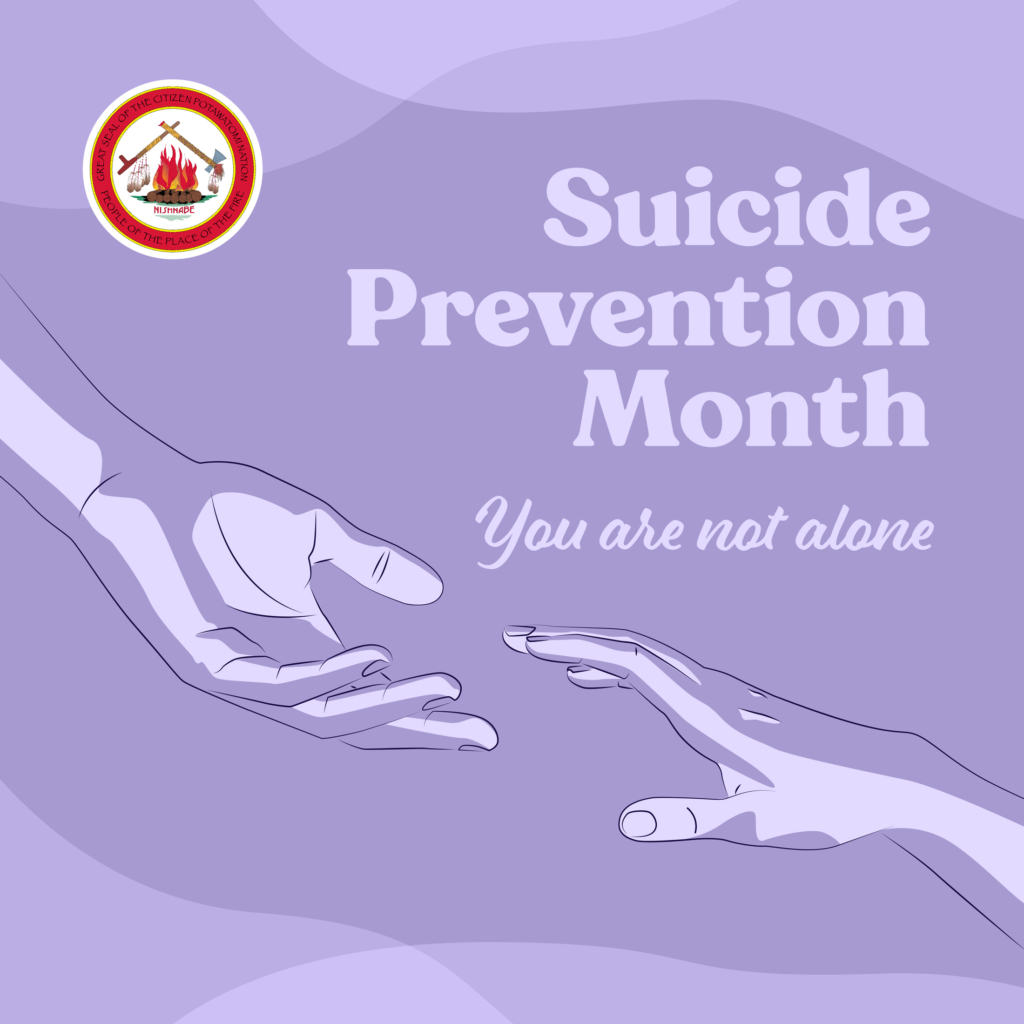
Suicide is the second leading cause of death for people aged 10-34 and the fifth leading cause of death for people aged 35-54 in the United States, according to a 2022 National Center for Health Statistics brief. In 2020, there were nearly two times as many suicides in the U.S. as there were homicides, reported the Centers for Disease Control and Prevention. The highest rates of suicide in the U.S. are among Native Americans (CDC).
September is Suicide Prevention Awareness Month, a campaign to raise awareness, shift public perception, spread hope and share resources, according to the National Alliance on Mental Illness.
Support Group
Linda Swearingen, LADC, joined the Citizen Potawatomi Nation’s Behavioral Health Services staff in July and will expand the Nation’s offerings for those affected by suicide.
Swearingen is credentialed by Didi Hirsch Mental Health Services to facilitate a peer support group for survivors of suicide attempts. This group program will be the first of its kind offered at CPNHS. The group runs in eight-week cycles and is limited to eight participants. The first session will begin October 2, 2023.
“It’s a support group, not a therapy group,” Swearingen explained. “It teaches the participants skills for addressing the impulse behaviors and helps them develop a prevention plan.”
The prevention and safety plan includes internal coping strategies, such as meditation and grounding; external coping strategies, such as putting oneself in safe situations; and identifying people one can ask for help as well as professional resources available.
Swearingen also emphasized the harm reduction aspect of the suicide attempt survivor group.
Whether by offering a safe space to dispose of stores of medication and return guns or by teaching patients techniques like freezing the key to a gun lock in a cup of water to put a barrier between themselves and the weapon, the group helps patients create a safer environment for themselves.
CPN Behavioral Health Services also offers individual therapy.
Speaking openly
Over the course of her career caring for patients affected by suicide and/or suicidal thoughts, Swearingen has learned the importance of speaking directly about suicide.
There was a time, she said, when she would avoid talking about suicide out of fear of what might happen to her patients if she did so.
However, she says she’s “no longer scared to talk about it. It’s something that is necessary. I’m not going to be able to talk somebody in or out (of suicide) … but I can at least give them the skills necessary to help.”
With rates of suicide, suicide attempts and suicidal thoughts at an alarming high, providing safe space for honest conversation about the realities of living with suicidal thoughts is imperative.
Swearingen extends the same advice to anyone whose loved one may experience suicidal thoughts: provide an empathetic ear, don’t be afraid to speak directly about suicide and don’t be afraid to call for help.
Suicidal thoughts can affect anyone, regardless of age, gender, race or background.
If you or a loved one is affected by suicide or suicidal thoughts, you are not alone and there are support resources available.
The national Suicide & Crisis Lifeline can be reached 24/7 by call or text at 988 or online at 988lifeline.org. The Veterans Crisis Line can be reached by calling 988 and selecting 1, or by text at 838255. The Trevor Project offers 24/7 crisis counseling for LGBTQ+ callers at 866-488-7386 or by text at 678-678.
Find CPN Behavioral Health Services online at cpn.news/behavioralhealth or call 405-214-5101.
